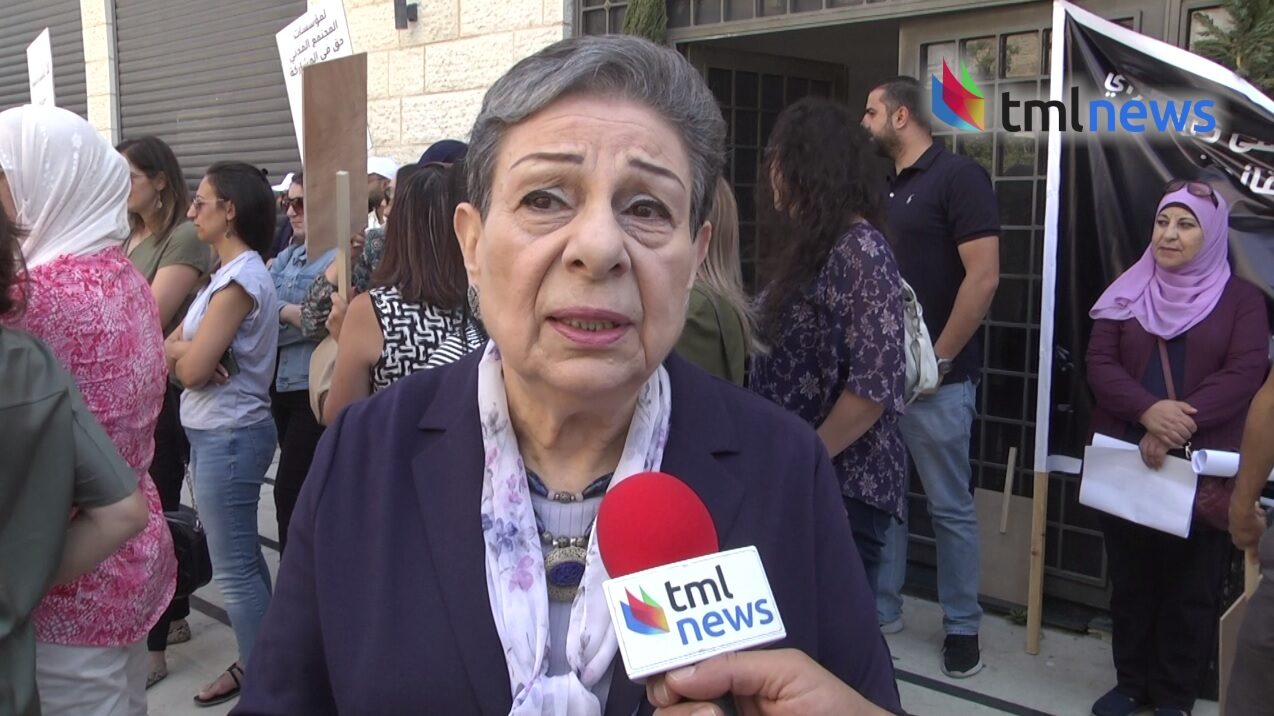Palestinian Authority Faces Backlash Over Crackdown on NGOs
Dissatisfaction with PA's governance fuels protests in Ramallah
Dozens of protesters gathered outside the Supreme Judicial Council in the West Bank city of Ramallah on Tuesday, calling for the Palestinian Authority (PA) to end its crackdown on nongovernmental organizations, dissent, and freedoms. These demonstrators showed solidarity with two senior officials at the Coalition for Accountability and Integrity (AMAN) who were summoned for questioning last month by the PA prosecutor’s office. The interrogation followed the publication of a report implicating individuals close to PA President Mahmoud Abbas in alleged financial corruption.
We feel this is an escalation and an assault on basic freedoms—an assault on freedom of expression, an assault on the right of civil society institutions and NGOs to hold the government and authorities accountable
“We feel this is an escalation and an assault on basic freedoms—an assault on freedom of expression, an assault on the right of civil society institutions and NGOs to hold the government and authorities accountable,” former Palestinian legislator Hanan Ashrawi told The Media Line.
Over recent years, the PA has shuttered media organizations and detained critics of Abbas and the PA, including Nizar Banat. Banat, a fierce PA critic, died in 2021 after a severe beating by Palestinian security forces, sparking widespread protests and a violent response from the PA police, including assaults on journalists.
Ashrawi suggests the recent actions of the PA point to more profound issues within Palestinian society.
“Certainly, this crackdown is significant in that it signifies the closure of public space, the shrinking of the space for freedom and rights. And also, it signals the evolution of a system that has become more autocratic,” she said.
Give the gift of hope
We practice what we preach:
accurate, fearless journalism. But we can't do it alone.
- On the ground in Gaza, Syria, Israel, Egypt, Pakistan, and more
- Our program trained more than 100 journalists
- Calling out fake news and reporting real facts
- On the ground in Gaza, Syria, Israel, Egypt, Pakistan, and more
- Our program trained more than 100 journalists
- Calling out fake news and reporting real facts
Join us.
Support The Media Line. Save democracy.
The PA’s governance has noticeably shifted towards corruption and consolidation of presidential power since the last presidential elections in 2005 and the most recent legislative elections in 2006.
“Restrictive measures and restrictions on civil space and civil society institutions in particular, is an attempt to prevent the participation of the Palestinian public from holding Palestinian officials accountable for their actions, in the absence of the legislative council in policymaking,” Ramallah-based political analyst Jihad Harb told The Media Line.
“We demand a restoration of the political system with regard to the separation of powers, giving consideration and independence to the judiciary, and restricting the work of the executive authority and holding elections,” Lamis Hantouli, program director at The Palestinian Initiative for the Promotion of Global Dialogue and Democracy – MIFTAH told The Media Line.
Demonstrators urged the PA to cease its suppression of watchdog NGOs and uphold freedom of expression while demanding that corrupt officials be held accountable. The small, vocal protest was closely monitored by the PA police.
Despite the repression and despite all that the authorities are doing, the people are increasingly rejecting it and more motivated to defend their rights and their homeland
Political and social activist Assaf Assaf, who was detained several times in the past, told The Media Line that the PA continues to intimidate its critics.
“Despite the repression and despite all that the authorities are doing, the people are increasingly rejecting it and more motivated to defend their rights and their homeland,” he said. “It also reflects that the PA increased its dependence on security.”
Recent polls indicate that dissatisfaction with the PA and President Abbas has reached its nadir since the PA’s establishment. Several political analysts suggest that unless the PA reconsiders its draconian policies, escalating opposition and deteriorating security could potentially lead to an implosion.



